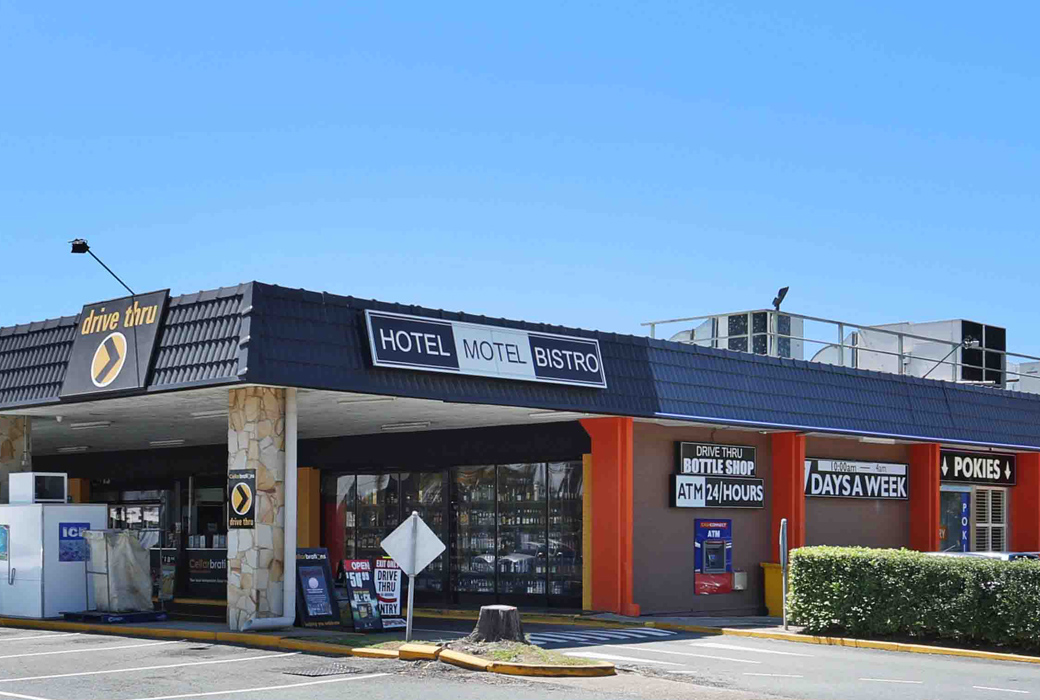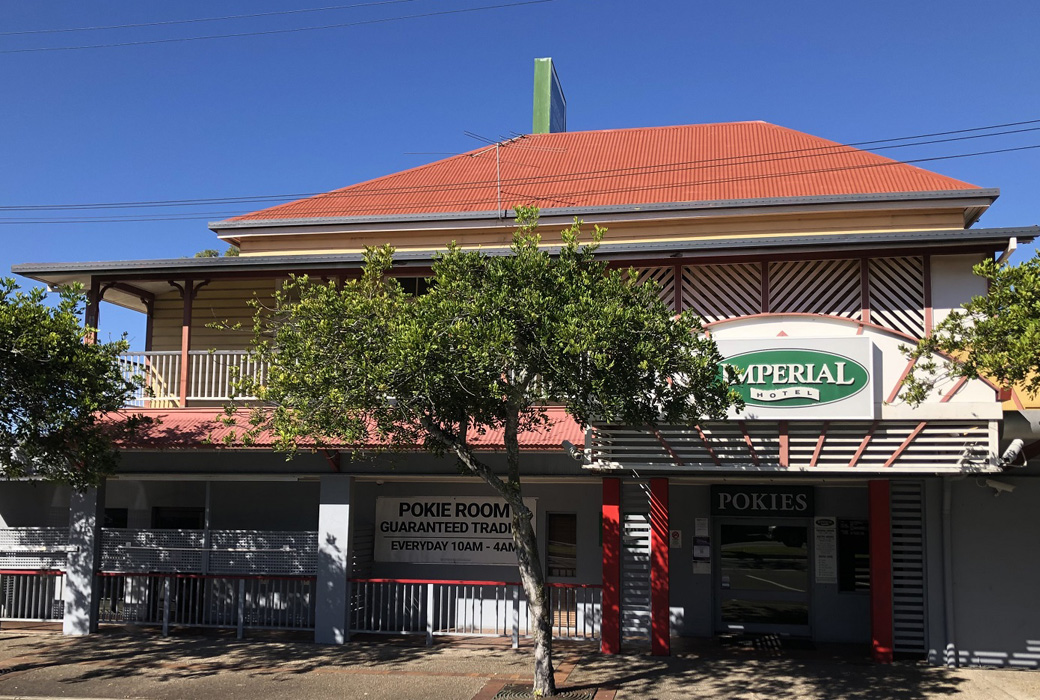MAJOR FEATURE

LEASEHOLDS, LEASE-BACKS AND FREEHOLDS
The economic climate of the last few years has been such that most publicans have some freedom in the balance sheet. Couple this with the willingness of banks to lend, and the majority of buyers are inclined to go the extra mile for the bricks and mortar too, rather than just the business interest.
But there are undoubtedly desirable factors in a leasehold, and while it is really not possible to compare apples with apples on lease deals, the benchmark of multiples on ROI has most certainly gone up in the recent past, particularly post-COVID. A solid business in the Sydney CBD might have sold for six times earnings prior to the pandemic, and now may attract a price representing 7-7.5 times.
Again Brisbane is achieving similar results as Sydney. Pubs predominantly doing good business in f&b can command a price representing around five times earnings, while a gaming-centric pub will fetch seven to eight times returns.
Melbourne is dominated by leaseholds in pubs, but ironically, while there have been fewer than normal transactions take place in Victoria in the past year, they have been a fairly even mix of leases, FGCs and even passive investments.
The most active player in the leasehold space in Victoria and indeed around Australia, is Australian Venue Co (AVC), which is working toward an IPO and public listing as a lease aggregator. This model is based on the high returns emanating from the right businesses, and AVC has been very actively scouring the country for suitable candidates upon which to apply appropriate capex and reap the rewards. It reports typically adding 20 per cent to earnings in the first year after an acquisition.
AVC’s recent pitch at the ASX aimed to raise $350m from investors, offering stakes at 15-times profit forecasts for 2022. But the IPO was put on hold in the wake of a COVID-19 flare-up in Sydney and general market unease.
AVC has been actively acquiring leases in all states, including the Northern Territory. Darwin is similar to Melbourne in that the majority of pubs are leasehold businesses, with the freeholds held by a small number of local institutional property owners.
MAJOR FEATURE
HTL’s Brent McCarthy has been the most active agent in the NT, and reports fielding enquiries from an increasing number of southern buyers running the ruler over opportunities, “chasing yield, but also lifestyle,” he says.
Main drag Mitchell St in Darwin is the hot spot for pubs and entertainment, and McCarthy cites a strong operation in this precinct can see a price of six times earnings. Outside Mitchell St, the suburban hotels transact for closer to five times.
COVID has influenced the leasehold market, mostly by virtue of those that did not survive the pandemic. A significant number of tenants, predominantly those in expensive locations in or around the CBDs, were not able to stave off mounting debt during the shutdown and did not survive. Quite a few of these operations have languished somewhat post-COVID, but the longer a property remains vacant the more motivated a landlord is to get rent coming in again, which could make for negotiating room for an enterprising operator, such as with James Thorpe’s Odd Culture outfit moving into what were Jaime Wirth’s pubs.
LEASE-BACKS
The strategic play of selling the freehold while retaining the business as the tenant is not common, but has significant benefits in the right applications.
Historically, this is a strategy most commonly employed by ALH, which has often found benefit in being simply a tenant with strong cashflow, much like AVC. In select cases, such as where the value of the real estate is not seeing much appreciation, it may serve the company well to clear a large packet of debt from the books and focus on the returns in the operation, with the ongoing benefit of the cashflow.
It ALH’s case, there is also the consideration of often needing the hotel to anchor a bottleshop licence. The pub operator is under the Endeavour umbrella alongside retail liquor brands Dan Murphy’s and BWS, and a pub may be essential to maintaining these even if not profitable in its own right.

Acacia Ridge Hotel
Other examples of sale and leasebacks in recent times were the Maloufs’ Royal Hotels selling the freehold title at Gregory Hills, and the White Partners and Monarch divestment of their title at Acacia Ridge.
For Royal Hotels, which had built the Gregory Hills from the ground up a few years earlier, they benefitted from avoiding the capital gains bill they would have incurred selling what had become a thriving freehold going concern, while retaining a business with cashflow generating around $5m annual EBITDA.

Such a deal might involve seeking a price for the freehold that incorporated a rent covenant on the business the operator knew from experience was well within a comfortable range. Active buyers of pub freeholds, such as Charter Hall and HPI, which bought the titles at both Gregory Hills and Acacia, are conscious of the need to set rental returns within a spectrum that allows a strong operator to continue to do well.
Other factors that might come into the negotiation in a sale and lease-back are the level of personal guarantee and bank guarantee on rent in advance. The seller might elect to avoid putting personal property on the line in exchange for a 12-month guarantee, leaving a year’s rent in the bank with minimal returns.
MAJOR FEATURE
PASSIVE FREEHOLDS
Barring an ongoing COVID-tainted rent dispute between the country’s largest publican, ALH, and the largest pub landlord, the ASX-listed ALE, involving rental increases at around a quarter of ALE’s 80+ properties, the appetite for pub titles under lease has been going from strength to strength.
In addition to ALE, the Australian Stock Exchange governs listed players HPI (Hotel Property Investments) and Charter Hall’s Long WALE.

Imperial Hotel, Beenleigh
Rarely a seller of any of its gold-plated freeholds, all typically triple-net leased to ALH for more than a decade, ALE has recently realised its investment on four properties in Queensland and one in Victoria. These A-grade investment assets achieved yield figures of 4.15 - 4.98 per cent.
One of these was the case of Brisbane property and retail entrepreneur Greg Josephson, who took the deeds to ALE's Noosa Reef Hotel freehold at auction for $13.9m, leased to Endeavour with initial expiry 2029 plus four 10-year options.
Even more recently, the freehold investment on the Imperial Hotel Beenleigh, triple net leased to ALH plus holding potential for a 12-storey development, is going to market through Savills Australia. The agents anticipate interest from local and interstate investors.
Savills reported in May that investor appetite in Queensland “is in overdrive” for quality freehold hotels with strong tenants.
Likewise, HTL reports market movement to freehold passive investments, as seen with HPI seeking ALH or QVC (the former Coles hotels, now operated in partnership with AVC) covenants, looking at 4.25-6 per cent.
The appetite has even spread beyond the capitals and A-grade lease covenants to key regional locations. In May an auction on the passive freehold of Soden’s Australia Hotel in Albury generated enormous interest, ultimately selling well above the reserve to the long-standing tenant in an effective reverse of the lease-back.
SUMMARY
Many are postulating as to whether Australia is in the grips of a real estate bubble. Fodder to the argument are the headline-grabbing prices being paid for pubs in so many locations.
For more than a year the Federal Government has been injecting billions of dollars into the economy, potentially creating an artificially inflated environment on consumer spending. JobKeeper and many of the other sweeteners have now ended, so it remains to be seen if there are long-term consequences to the end of stimulus. We may yet see the demise of some of the so-called ‘zombie’ businesses purported to have been surviving only by virtue of JobKeeper.
National inflation remains low, coming in at 0.87 per cent for 2020 – around half that of 2019 (1.61%) and 2018 (1.91%). This bodes well for an economy that has recently spent billions propping itself up, but low inflation simultaneously affects levels of appreciation on assets such as property, meaning it benefits some less than others and has the potential to discourage investment.
There are those certainly adopting a ‘watch and wait’ mentality, concerned about the flow-on effects of the money tap being turned off. Many enterprising people have used balance sheet headroom to buy as much as they can, leveraging revaluation upon revaluation, driven by interest rates continuing at record lows. Changes to the cost of debt could leave some out on a ledge.
On the upside, the spread between debt and return is still very large. Institutional investors are locking in funding at low rates, often around 1.5 per cent, while even the sharpest yields are five to six per cent higher.
By that token, most FGC owners would probably find enough leeway in their balance sheet even in the case of a significant drop in valuations throughout the market, in the region of 10 per cent; not exactly a ‘burst bubble’ but more devastating than has recently happened or is likely to happen.
For pubs, a more frightening prospect is the ever-present spectre of legislation change that affects gaming. Any significant change to the current regulations could easily affect some operators far more than did COVID-19.
The dogged appetite of corporate consolidation, including the confident acquisition strategies of many mid-sized groups, is making for fewer and fewer opportunities for younger players. Add to this the international desirability of Australia in a COVID-crazed world and the further honing of cap rates, and there are also a lot of motivators afoot for would-be vendors.
“The market right now is particularly active, because fundamentally there are compelling reasons to participate on both the buy and sell sides of a transaction,” explains HTL’s Dan Dragicevich.
“Historically low interest rates, compelling cash on cash returns and relatively clear legislative headwinds give would-be purchasers plenty of impetus. On the flip side the prices currently being achieved and the yields they reflect are at record levels, and the COVID closure did give some owners the opportunity to reflect on their plans moving forward.
“It appears the groups especially have come out of COVID intent on growth, but the single asset owners or smaller partnerships are more likely to consider divesting."
